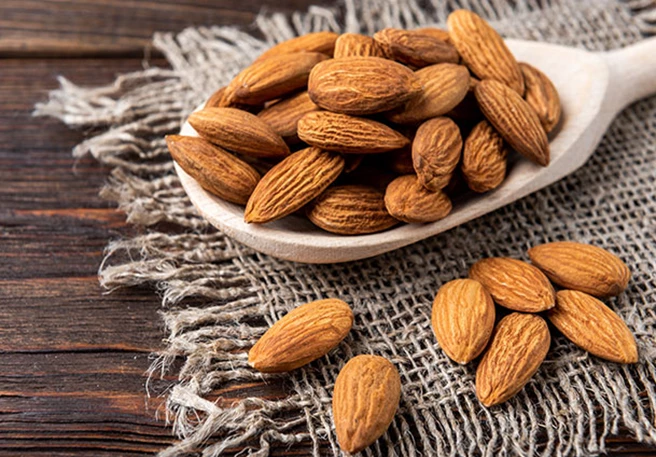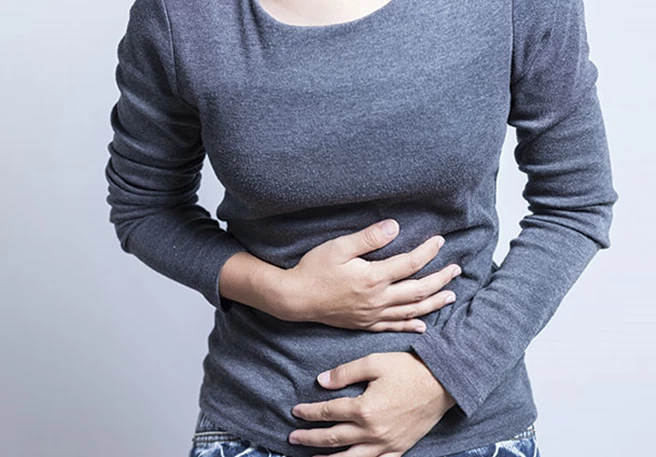Histamine - the 'intolerance to everything pleasurable'
Tiredness, headaches, stomach upsets, rashes, heart palpitations and dizziness, often in combination: inexplicable symptoms
that often take a long time to get to the bottom of. After all, allergy tests and other examinations do not yield any findings.
The reason for the complaints may be a histamine intolerance.

What exactly is histamine?
Histamine is a natural messenger. It is produced by the body itself and can be found all over the body. In biochemical terms, histamine is one of the biogenic amines. That is the name given to metabolites of protein components, the amino acids. In the human body, histamine is involved in many different bodily functions. It plays an active role in immune defense. If a body part swells, for instance due to an injury, this is caused by the action of histamine. Histamine is also involved in the generation of itching and pain – and in many allergic reactions.
Furthermore, histamine is contained in many foodstuffs. In this case, it is known as exogenous histamine. Particularly long-matured products such as red wine and hard cheese contain a large amount of histamine. Other foodstuffs such as pineapples and chocolate are among the histamine liberators: although they contain only a little histamine, they additionally release it in the intestine. Food that contains or releases histamine can usually be consumed without problems, as the endogenous enzyme diamine oxidase (DAO) breaks down histamine.

Why can some people not tolerate histamine?
A lack of the DAO enzyme means that the body can no longer break down the histamine in food. The histamine problems can be temporary or permanent (chronic) here. An excess of histamine can be temporarily present in the body due to fish poisoning, histamine-rich food, stress or intense physical exercise. If the body does not then have a sufficient quantity of DAO, this can lead to various symptoms. Alcohol or medicines – even in small amounts – can also briefly prevent DAO from doing its job. A temporary enzyme deficiency of this kind can affect anyone and trigger complaints. The formation of DAO enzymes can also be impaired genetically or due to chronic inflammatory bowel diseases such as Crohn's disease or celiac disease. In this case, there is a permanent enzyme deficiency.

Could I have a histamine allergy?
To be clear from the outset: there is no histamine allergy. Although the symptoms resemble those of an allergy, they have totally different causes. In the case of an allergy, the immune system treats harmless substances as if they were pathogens: it forms antibodies against the suspected invaders. These antibodies “memorize” the “faces”, as it were, of the suspected invaders and raise the alarm as soon as the substance concerned enters the body. As a result, the immune system hauls out its artillery – an allergic reaction is triggered. So how come an antihistamine product helps many allergy sufferers? Simple: as a messenger, histamine is heavily involved in an allergic reaction. Antihistamines delay the messenger, thus weakening the allergy symptoms.

What is a red wine allergy
For many people, a glass of red is simply part of a relaxing evening. Yet next morning, some of them feel unwell. This is not always the alcohol's fault. In fact, intolerance symptoms are often apparent after enjoying red wine. This is because many red wines contain histamine. The more mature the wine, the more histamine it contains. The histamine content varies significantly depending on vintage, variety and country of origin. As well as histamine, other ingredients such as sulfites or tyramine can result in intolerance reactions. In addition, red wines can contain proteins, to which some people can indeed develop an allergic reaction. Important: If you notice something wrong after enjoying small amounts of red wine, you should talk to your physician about an allergy test.

Who is particularly susceptible to histamine intolerance?
Women are unable to break down histamine sufficiently much more frequently than men. The complaints become particularly apparent during the menopause.Therefore, some physicians believe that there is a connection between histamine and hormones. One factor to support this assumption is menstrual cramps, which are part of a long list of symptoms.

Histamine intolerance and pregnancy - what do i need to remember?
During pregnancy, in most cases, the troublesome complaints triggered by histamine vanish as if by magic. This is because of the increased production of DAO. The level of the protective enzyme is tripled during pregnancy. The purpose of this is presumably to protect the embryo against histamine. After birth, the DAO level falls back down – and the intolerance can return.

Help: is my child sensitive to histamine?
Whining after feeding, flatulence or rashes make many mothers think that their baby cannot break down histamine properly – especially if they experience it themselves. In most cases, the baby's complaints stem from other causes that can be easily explained and treated. At present, there is no record of how many children and young people have a sensitive response to histamine. Based on existing research, medical experts believe that
histamine-related problems often only arise over time.

Is there a link between histamine and sport?
Yes, there is. Endurance sport and intense physical exercise significantly boost the production of histamine in the body. Short bursts of three to five minutes are all it takes for this to happen. If there is no chronic enzyme deficiency, the raised histamine count falls back to the original level after a period of rest.













